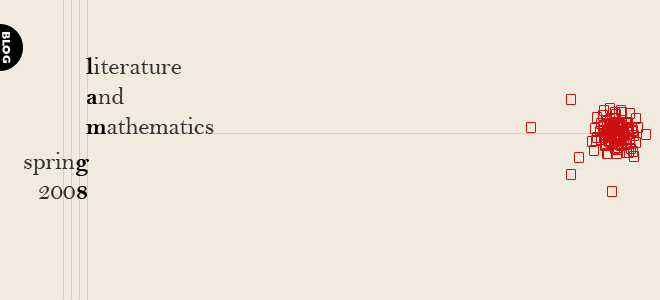As I was reading about the mandatory imagination removal operation, I kept thinking about the problems facing an unimaginative civilization. Lacking an imagination cripples one’s creative thinking and problem solving skills. I think that a society without creative individuals is void of intellectual discoveries (scientific or otherwise) and therefore lacks any capacity for progress or adaptation. A society without progress is simply a machine for maintaining the status quo, and will eventually yield to the influence of outside forces. Even the wall will not protect the city indefinitely; it will inevitably decay and deteriorate.
As for motives behind the operation program, the Benefactor states that the people “longed for someone to tell them, once and for all, the meaning of happiness, and then to bind them to it with a chain.” (Zamyatin, 214) I can understand how he feels that the operation is a solution to the happiness problem; however, I doubt that the Benefactor intends to create a stagnant society. Surely one capable of orchestrating such a rational and efficient municipality must be able to predict the results of a complete lack of progress in a civilization. If progress is essential to survival, and if survival is one of the main goals of a society (other than happiness), than it seems that the imagination annihilation program instituted by the Benefactor is a step in the wrong direction.
I understand how the “operation” is useful and necessary simply as a plot device, but I find the character of the Benefactor to be intriguing, and I am curious as to the motives of the character as intended by Zamyatin. I noticed while reading that there is no mention of the guardians receiving the operation. I doubt that the efficiency of any police force would remain unaffected by removing the imaginations of the agents, and it would seem that the Office of the Guardians is more crucial than ever during the final uprising during the last chapters of the book. It could be said that the Benefactor is simply moving for complete control of society rather than focusing on eradicating unhappiness. His monologue during entry thirty-six is seemingly convincing of his dedication to the problem of happiness, but I am not decided.

No comments:
Post a Comment